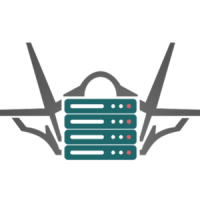New on LowEndTalk? Please Register and read our Community Rules.
All new Registrations are manually reviewed and approved, so a short delay after registration may occur before your account becomes active.
All new Registrations are manually reviewed and approved, so a short delay after registration may occur before your account becomes active.
IPv6 /64
Most VPS providers lease a /64 ipv6 subnet with it for free.
what in hell I would use 18 446 744 073 70'ffs'9 551 616 IPs for?
What's the use case of this MASSIVE amount of free IPs. what do you do with it?
PS. Thanks, @seriesn for not giving me more hard time when I grabbed the Germany node.
Thanked by 1seriesn

















Comments
I want to know too.
You can make each service one ipv6. For example: In Nginx, You can config domain1 listen on ::1, domain2 listen ::2
But in ipv6. /64 is Residential. It's the same one ipv4
It's the recommended amount for IPv6. /64 for a single device, or a /48 (?) for a router.
/64 for Residential
/48 for Business
/32 for ISP
recommended based on what? what a single device is going to do with all these IPs?
The thinking behind the massive address range for a /64 subnet is not that you might want to allocate that many manually or that the space might ever get filled, but to ensure a node can allocate itself a unique address just by picking a random number with no practical chance of a clash, i.e. no DHCP needed.
Workstations are often configured with privacy addressing enabled so they frequently change their random address.
A /64 is conventionally the smallest subnet allocated within the address space for routing, though some subdivide it further locally often as a workaround to some local restriction.
Read my sig.
Idling.
Bragging rights, with those that get /128 or those that's fed with empty promises of IPv6 implementation by their provider(s).
The official IPv6 RFCs? Like somebody said, it's to simplify random allocations with DHCP/SLAAC.
According to RIPE recommendations /56 should be assigned to residential users and prefixes longer /56 should not be assigned as it makes subnetting impossible because every LAN needs a /64 for SLAAC etc. to work.
I read it, so it says that it's 'recommended' to use/think an entire /64 as a single ipv4 for every subnet, even a p2p. is it a routing issue (which mentioned above) ? so ipv6 isn't ready yet?
what I'm missing here? I can't get out of my head 'thinking ipv4'.
Ipv6 is ready for over 20 years by now and no that is no routing issue, it is simply a design choice to prevent issues that might occur in the future in use cases which are not foreseen yet.
In essence yes, and no not a routing issue... some technical background explaining the rationale to back up the article linked in @Shot2's sig.
RFC7421 Analysis of the 64-bit Boundary in IPv6 Addressing
Hadn't appreciated that /80 was considered as the possible recommended boundary in the early days before /64 was adopted/'recommended'
If it's just a matter of mental barriers and habits dying hard, just take "mental shortcuts" and think of /64 as one IPv4, yes. It's just 4 numbers separated by colons instead of dots.
Everything under that /64, you may eventually think of it as NAT+privateIPs, or as ports, or whatever - even if not perfectly valid from a technical viewpoint, this analogy is of comfort to the troubled mind
Thats along thread. I'm glad that Im taking tomorrow off.
thanks.
I recently started making API services in Go programming language.
To deploy multiple API services on the same IPv4, I would have to setup Caddy reverse proxy (changing ports is infeasible because Cloudflare only allows 6 HTTPS ports).
With IPv6, I can assign one IPv6 to each API service. It's simpler than dealing with reverse proxy.
/112 would be enough for me. I use the last 4 hexadecimal digits to indicate what service it is.
I usually don't need a massive /64 on a small VPS. Actually I prefer a routed /112 (i.e. 65536 addresses) over a /64 which requires you to register each IPv6 address you want to use in a control panel.
Why do openvz hosts often need you to register each IPv6 address, when a routed prefix would be much better?
Also the openvz hosts overwrites the network config when booting the VPS which is a PITA if you want to use some IP addresses on other interfaces or via a VPN on a remote host.
If I want to run docker then I need more than /80, which is the minimum recommended by docker.
The reason you get this many IPs with IPv6 is so you can ditch NAT, which breaks the end-to-end principle. Direct routing is always better than hacky NAT/proxy deployments.
I use it for my SSH to listen in one of 18,446,744,073,709,551,616 IPv6 addresses and assign unique IPv6 addresses for each of my domains.
wouldn't be great if control panels (cpanel, plesk, etc) auto-assign ipv6 for each site it has ?
no that wouldn't be great, it makes no sense most of the time so doing it by default is bullshit.
well, using it for mail server is not bs, and ya for sites i agree its might be aluxuary feature.